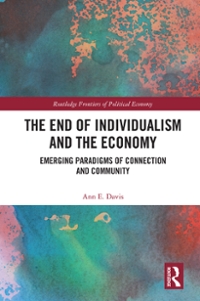Question
1. Macroeconomics can be a difficult topic to define. For the most part, it can be defined by the specific topics with which it is
1. Macroeconomics can be a difficult topic to define. For the most part, it can be defined by
the specific topics with which it is concerned. Among these are output, inflation,
unemployment, interest rates, and international trade. At first these topics may seem
unrelated, but some thought shows that they are intimately related.
A. The AD/AS model describes changes in the economy by relating real GDP (output)
and the price level.
I. Compare and contrast the Keynesian portion of the AD/AS model with
the classical portion of the AD/AS model, and explain how the level of
production is determined in each situation. Use graphs to explain your
answer. (12 points)
II. Compare and contrast changes in aggregate demand and changes in
aggregate supply in the AD/AS model. Use graphs to explain your
answer. (12 points)
B. The Phillips curve relates inflation and unemployment.
I. Using the AD/AS model, discuss the changes to the economy that the
Phillips curve explains well, and describe under what conditions the
Phillips curve fails to explain economic behavior. Include graphs of the
Phillips curve and the AD/AS model in your answer. (12 points)
II. In the late 1990s, the U.S. economy experienced a period of extremely
low inflation and extremely low unemployment. Use the AD/AS model to
explain what sort of change in the economy would cause this. Include a
graphical analysis in your answer, and provide two examples of what
might bring about this event. (12 points)
C. Explain the relationship between interest rates and unemployment. How do
changes in the interest rate affect the level of unemployment in the
economy? (10 points)
D. Consider the relationship between interest rates and inflation.
I. Explain the difference between real and nominal interest rates. (9 points)
II. If the Fed takes actions that will change interest rates, how is this likely
to affect inflation? (9 points)
2. The U.S. economy experienced large trade deficits in the 1980s and 1990s and
tremendous economic growth in the mid- and late-1990s.
A. Trade deficits have an effect on inflation. Explain the relationship between
trade deficits and investment verbally and mathematically using the concept
of the balance of payments. (10 points)
B. Explain verbally the relationship between investment and long-term
economic growth, and describe the relationship graphically in an AD/AS
graph. (10 points)
C. Many people believe trade deficits are a serious problem and need to be eliminated.
I. Explain the three actions the Fed could take to reduce the trade deficit in
the United States, and explain carefully how these actions would result
in a reduced trade deficit. (10 points)
II. What effect would these three actions from part i of the question have on
GDP? Describe the effects on each of the components of aggregate
demand. Include an AD/AS graphical analysis of your answer. (7 points)
3. In Country X, GDP is $400 billion below the full-employment level of output.
Government officials have measured the marginal propensity to consume at 0.75.
A. The government wants to use fiscal policy to bring the economy back to full
employment.
I. If the government wants to achieve this through a change in spending,
what change would be necessary? (8 points)
II. If the government wants to achieve this through a change in taxes, what
change would be necessary? (8 points)
III. If the government wants to achieve this without creating a budget
deficit, what change would be necessary? (8 points)
B. Say that for a variety of reasons, the government shows that it is not up to
the task of conducting fiscal policy. The central bank steps up and does
something about it. If a 1% decrease in interest rates leads to an increase
in investment of $50 billion, how should the central bank's interest rate
targets change? (13 points)
Step by Step Solution
There are 3 Steps involved in it
Step: 1

Get Instant Access to Expert-Tailored Solutions
See step-by-step solutions with expert insights and AI powered tools for academic success
Step: 2

Step: 3

Ace Your Homework with AI
Get the answers you need in no time with our AI-driven, step-by-step assistance
Get Started


